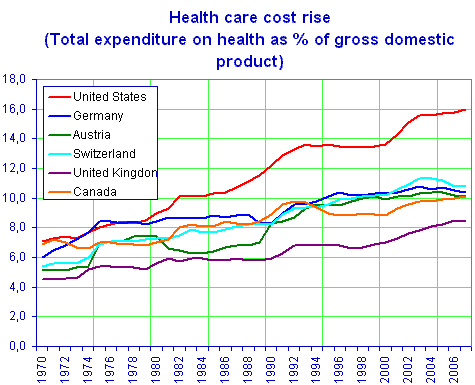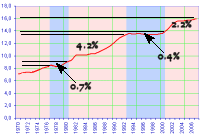Thousands of years ago in a former life, I was a college student majoring in math [because it was the thing that was easy for me]. There were lots of questions coming from home about what I was going to do when I grew up. At that particular time, I wasn’t really interested [not in the question of what I was going to do, the thing I hadn’t yet become interested in was "growing up" at all]. But I dutifully explored the options. Most of them had to do with things like engineering, science, teaching, or business. Those all sounded more like punishments for sins in a former life than vocations. But then I ran across something called being an Actuary. I was told that they were the people who figured out things like Insurance Premiums. So I actually met with a couple of them in the summer, and took some practice tests. They were very nice people who explained actuarial science to me in detail [which helped me to decide not to be an Actuary]. But I was interested in what they said and it has kind of stuck with me.
I’m sure that it’s way more advanced now than in the dark ages B.C. [before computers] when I was talking to them. It was, even then, much more complicated than I’d ever imagined. They looked at their population of people, the medical costs of illnesses, the incidence and prevalence of illness, the money generated, the interest on the money generated, the death rates, etc. You get the point. They looked at every imaginable variable and came out with a premium for you to pay in your plan for insurance. I thought it was pretty interesting that you could get paid for playing with numbers like that. They seemed pretty proud they could do it [but actually doing it sounded like listening to paint dry to me].
 Such endeavors have morphed over the last 60 years from number crunching with a desk calculator that sounded like a Gatling Gun or giant primitive computers run with punch cards [that were less powerful than a modern iphone] to complex modeling on computers that can make movies like Avatar and District 9. With all that new power to predict the outcomes, why then do we hear such divergent predictions coming from the right and left about the outcome of the healthcare bill? Are they just dreaming? or lying? Or is the prediction apparatus that shaky? I don’t think any of those things explain the confusion. I’m not going to even attempt to explain it in any mathematical way [I’m not sure I could if I tried]. But I think there are some clear pointers that at least make the breadth of the disparity clearer.
Such endeavors have morphed over the last 60 years from number crunching with a desk calculator that sounded like a Gatling Gun or giant primitive computers run with punch cards [that were less powerful than a modern iphone] to complex modeling on computers that can make movies like Avatar and District 9. With all that new power to predict the outcomes, why then do we hear such divergent predictions coming from the right and left about the outcome of the healthcare bill? Are they just dreaming? or lying? Or is the prediction apparatus that shaky? I don’t think any of those things explain the confusion. I’m not going to even attempt to explain it in any mathematical way [I’m not sure I could if I tried]. But I think there are some clear pointers that at least make the breadth of the disparity clearer.

 Just out of curiosity, I wondered what this would look like if I displayed only the United States and added some color to represent the reigning political party. It’s on the right. My, my – I wonder what that means? Duh!
Just out of curiosity, I wondered what this would look like if I displayed only the United States and added some color to represent the reigning political party. It’s on the right. My, my – I wonder what that means? Duh!
But back to the main thread, the only way to bargain for medical care is by collective bargaining. For a time, in America we had that. People’s medical insurance was through their employment. Employers negotiated with Insurors who negotiated with providers. And in many cases, the Unions were in the mix, representing the consumers. But in the 1980’s, that changed I’m sure for a variety of reasons. I, of course, blame it all on Reagan and the businessification of America that came with him. The working class was supposed to get trickled on but, instead, got tinkled on. That’s where the exclusions, and the pre-existing conditions, and all the stuff that destroyed the safety of health insurance began. As costs rose, something called "managed care" came along. It was supposed to drop medical costs by regulating medical care.  They did regulate medical care, though costs didn’t come down very much. What happened was that the medical industry became more profitable. Managed Care didn’t really represent the consumer. I think they were afraid of Clinton, who threatened to reform health care [he tried, and it cost him control of the Congress]. But gradually, they tailored medicine to exclude those who needed it most and turned it into a business enterprise only.
They did regulate medical care, though costs didn’t come down very much. What happened was that the medical industry became more profitable. Managed Care didn’t really represent the consumer. I think they were afraid of Clinton, who threatened to reform health care [he tried, and it cost him control of the Congress]. But gradually, they tailored medicine to exclude those who needed it most and turned it into a business enterprise only.
In my opinion, the healthcare reform that Obama signed today is absolutely brilliant. It’s not "socialized medicine." It’s not government interference. It’s a carefully crafted something else. It says that Insurance Companies have to insure everyone. The can’t exclude people because they are sick. It says that everyone has to have insurance. That’s why the Republicans say premiums will soar, because the Insurance companies will have to take all comers. And premiums may well soar for a while. Here’s the brilliant part. The government will create an insurance exchange to barter with the insurance and medical industry on behalf of the consumers. Collective bargaining will re-enter the mix with the consumer being represented. Medical financing will be back in the free market economy where it belongs. There are lots of other things, but that’s the essence of the bill – it blocks abuse, insists that everyone be insured, and it throws us all into the free market where such things have been worked out since prehistory. The whole point is to drive the cost of medical care down by making it honest and trimming the fat. Why has the Medical/Pharmaceutical/Insurance Industry fought so hard against it? It’s because they’ve been getting rich because of their unfair advantages. Why should they care about the cost of medicine right now? The more it costs, the more they make. Now they’re going to have to fight fair and square for their profits.
I watched a documentary a while back the aim of which was to compare and contrast various health care systems around the planet. I was struck by an interview conducted with the CEO of a private Swiss health insurance company. I’ve been in a fair number of insurance outfits over the years – even doing some consulting with a Blue organization now. What I noticed was that this CEO looked like a health insurance company CEO, talked like one; the organization around him had all the cubicles and other accoutrements of an insurance company – the people moving the pieces of paper were all well dressed and professional looking…one imagined that the CEO and everyone in the organization was reasonably well compensated and so on – no complaints were aired from anyone at any rate. Switzerland has a federal level health care mandate that requires everyone to purchase health insurance, they have co-pays (up to a limit of 8% of income). They require health insurance companies to insure people if they want to play and they limit profits on a “basic” health insurance package. The government is not involved in day-to-day healthcare operations to any appreciable extent and the market essentially requires individual contribution, fairness in access, and universal protection in the case of undue financial hardship or medical catastrophe.
In short, it doesn’t seem a great deal different in most respects than the general plan outlined by the bill POTUS signed into law the day before yesterday. Moreover, the Swiss pay 6-7% for essentially private healthcare compared to U.S., ,are happy with their healthcare BUT – everybody has it and private insurers have to offer it regardless of an individual actuarial profile. It is at the very least the big BUT that has been substantially solved and Mickey is “spot-on” about it being as American as apple pie, free enterprise and fair play.
that’s 6-7% LESS than we do – the Swiss are the 2nd highest in the healthcare/GDP ratio (next to U.S.)